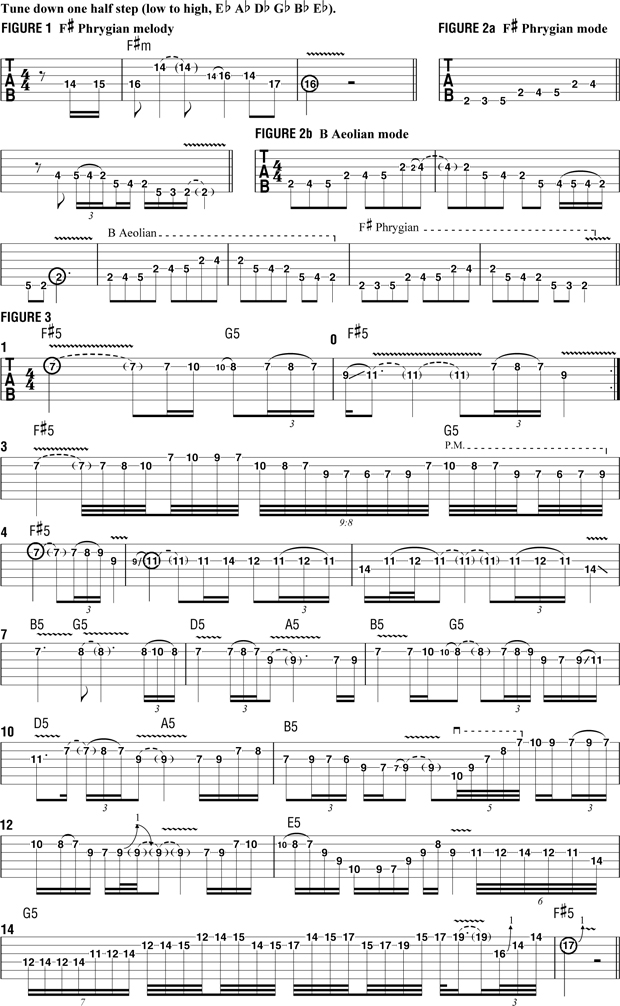Applying Modes to Different Tonal Centers
Modes offer great flexibility in terms of the way they relate to a set of chords within relative keys.
All the latest guitar news, interviews, lessons, reviews, deals and more, direct to your inbox!
You are now subscribed
Your newsletter sign-up was successful

When working on writing melodies for my original compositions, my standard approach is to examine the chord progression in order to determine which scales or modes would best apply.
A mode is the notes of scale, such as the major scale, oriented around a different root note and chord; Modes offer great flexibility in terms of the way they relate to a set of chords within relative keys, which makes them especially useful in more progressive styles of rock.
For example, if I’m in the key of Fs minor, I can use the F# Phrygian mode (F# G A B C# D E) to create a simple motif like the one shown in FIGURE 1.
The flexibility comes from the fact that this set of notes can be used to create six other modes just by starting on a different note in the series; likewise, each of these scale degrees relates to a different chord, which opens up options for different chord progressions and tonal centers.
If we take the notes of the F# Phrygian mode but start from B, this creates the B Aeolian mode, also known as the B natural minor scale (B C# D E F# G A); this mode relates perfectly to a B minor chord. FIGURES 2a and 2b illustrate how the two modes correlate and overlap.
Notice that, in terms of structure, the only difference between these two modes is the second scale degree: in F# Phrygian, the second is minor, or flatted (f2), whereas in B Aeolian, the second scale degree is major, or natural.
FIGURE 3 is a solo played over a two-part chord progression that offers an example of how to use the same set of notes to create two different sounds: the first part of the progression, bars 1–6, is played over an Fs minor tonal center, for which I utilize Fs Phrygian; the second part, beginning in bar 7, is played over a B minor tonal center, for which I use B Aeolian. Additionally, I continue to use these same seven notes over the last two chords in the progression, E5 and G5, creating E Dorian (E F# G A B C# D) and G Lydian (G A B C# D E F#) sounds.
All the latest guitar news, interviews, lessons, reviews, deals and more, direct to your inbox!

